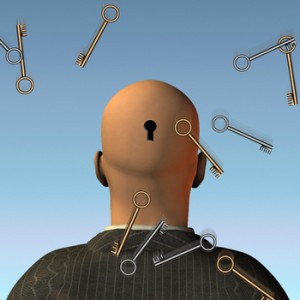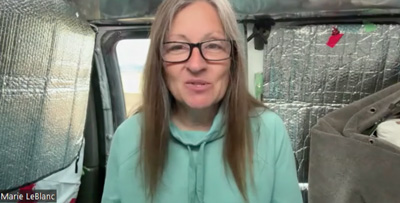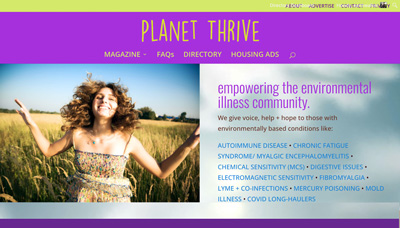 When I first started publishing articles about brain retraining for chemical sensitivity three years ago, I imagined that the Planet Thrive community would become a hotbed of research, intellectual debate and experimentation in this new exciting field. Quite the opposite happened at first; we experienced a severe backlash of resistance to the very concept of brain retraining within the MCS community. But now three years later, with more and more recovery stories surfacing, the MCS community has indeed embraced brain plasticity as a potential mechanism for healing, and my hopeful visions of a “laboratory for healing” are finally being fulfilled in the PT community.
When I first started publishing articles about brain retraining for chemical sensitivity three years ago, I imagined that the Planet Thrive community would become a hotbed of research, intellectual debate and experimentation in this new exciting field. Quite the opposite happened at first; we experienced a severe backlash of resistance to the very concept of brain retraining within the MCS community. But now three years later, with more and more recovery stories surfacing, the MCS community has indeed embraced brain plasticity as a potential mechanism for healing, and my hopeful visions of a “laboratory for healing” are finally being fulfilled in the PT community.
We now have over 250 members actively involved in brain retraining support groups, sharing every step of their sometimes excruciating, and more often times, exhilarating, journeys. T-Can is one such member. He joined Planet Thrive in October, 2011 and is now reporting an almost 100% recovery from the debilitating chemical sensitivity that brought him to our site just a few months ago. He shares his retraining approach – a mix of DNRS™ and some tapping techniques – in a new two-part article on the limbicretraining.com website.
T-Can shares all the free Internet resources he used, as well as the tweaks he made to come up with his own customized program. Recovery stories like these are being heard with more and more frequency in the Planet Thrive community. Although these techniques may not work for everyone, it is certainly encouraging to hear recovery stories from others and so very inspiring to see how when members like T-Can commit themselves 150% to the brain retraining process, they are enjoying seemingly miraculous results. Those of us familiar with brain plasticity know that this is not a miracle at all; it’s purely basic neurology. But the impact on the lives of those suffering from chemical sensitivity is nothing less than spectacular.
A huge thank you to T-Can for being so dedicated to your own recovery, and then taking the time to share your process with us all in the hopes of helping others find the key to their own healing.
Read T-Can’s story: Part 1 | Part 2
photo © Rolffimages | Dreamstime.com










0 Comments